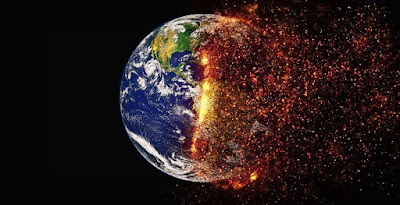The role of civil society and governments in adapting to climate change
“One of the very valuable lessons I learned during my nine years in office is that governments and international organizations cannot adequately do their job without effective engagement,” former United Nations Secretary-General Ban Ki-moon said at a press conference on the sidelines of the United Nations Climate Conference in Paris in 2015.
And the support of civil society, we need strong engagement and cooperation with the business community, the private sector and civil society, so these tripartite partnerships are necessary and fundamental to the success of any government or society.
We are all born with basic human rights, but those rights are always under imminent threat from the effects of climate change, and we all deserve equal protection from this global threat. There is nothing to lose by taking the initiative and we have everything to gain.
Addressing climate change gives us the opportunity to attach importance to the well-being of people by ensuring the right to a healthy environment and enhancing our rights in full without decreasing.
Therefore, many are currently working on finding inspirational and innovative solutions to confront climate change from citizens, states and organizations in order to protect the planet in which we live, Thus, civil society plays a pivotal and essential role in limiting the impact of climate change and adapting to its effects, as the failure to address the phenomenon of climate change and its disastrous effects has been the ally of societies for a long time, as the human community has largely ignored how it affects climate change To work, but it is not impossible to face the effects of climate change, as each of us who lives on this planet can change his lifestyle and behavior in proportion to the climate changes that occur on the planet. In the middle of the ocean, for example, it is possible for any of us to reduce the consumption of meat, milk and its derivatives (as studies have proven that the meat production sector causes large emissions of greenhouse gases) and to eat larger quantities of local agricultural products and avoid throwing large quantities of food In the garbage and the adoption of bicycles and walking instead of adopting the modes of transportation that emit greenhouse gases, as well as the rational use of available resources and work to increase the ability of people to manage shocks and bear pressures, and the programs and processes established by governments and authorities must be Climate-adapted local communities, ensuring priority for the most vulnerable people in climate change adaptation and disaster risk management actions, and listening to local communities to understand their knowledge, adaptation mechanisms, practices and needs related to the climate crisis in order to design culturally sensitive programs and support and empower local leaders Civil society and local communities in the field of climate change adaptation and disaster risk management efforts, breaking down barriers, and working together to address the risks of disasters caused by Change the climate, and women play an important role in adapting to the effects of climate change due to their pivotal role in the family, home and rural activities through changing the attitudes, behaviors and living conditions necessary for the success of adaptation to climate change.
No social group is more affected by climate change than young people.
It is not surprising that young climate activists lead strikes and sit-ins and come out and denounce governments and companies in more than 150 countries around the world for not prioritizing climate change on national and global agendas.
2019 the largest number of climate protests in history when an estimated 6 million people around the world came out to demand action against climate change.
However, a number of countries, the most important of which are the Arab countries, suffer from methods of suppression and restriction of freedoms for people and for the local press, which negatively affects citizens’ awareness of the existing climate crisis, especially the press, which is often confined and restricted as most young people require them to face political and social challenges.
The huge economic situation in their countries makes the protests in the region few and limited because the issue of climate change is not a priority at these exact times, so it is necessary free access to information, transparency, democratic and responsible governance, civil and political liberties in order to reach adequate awareness, and therefore Governments and local authorities must look for new and modern ways and approaches to access, make available and publicly disseminate reliable information on climate change to the general public.
This is essential and essential in the process of policy formulation. Without reliable information and data on temperature and levels of precipitation, it is difficult to assess the current climate and it is impossible to predict weather conditions and make climate forecasts, and the capacity to adapt to climate change must be built through Providing social protection for the population by taking measures in place to ensure equal access to health care and quality education.
These social protection measures include insurance schemes, pensions, resettlement programs and other social assistance work, thus adapting and achieving development goals together.
Proper planning for adaptation, effective and strong cooperation between governmental and non-governmental agencies, and the presence of abundant financial resources are all important factors for building resilience to climate change, as the preparation of national adaptation strategies is important for prioritizing adaptation activities that respond to urgent and immediate needs.
This cooperation must

Comments
Post a Comment
Thank you for comment